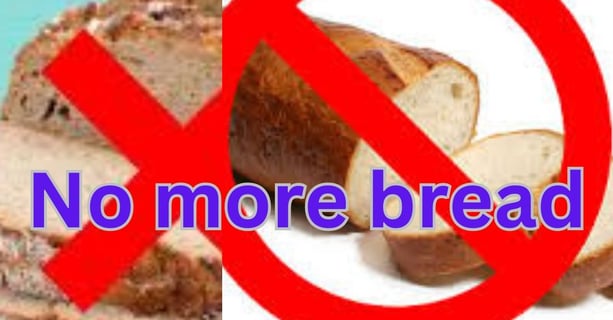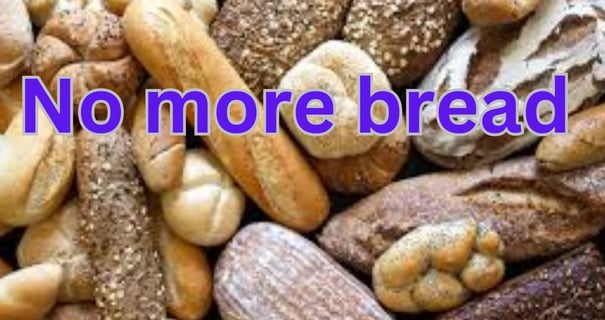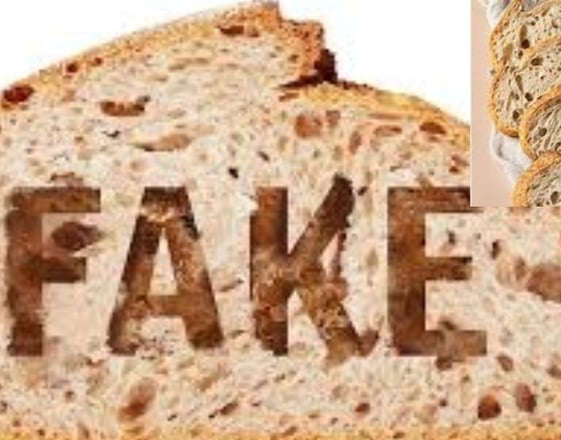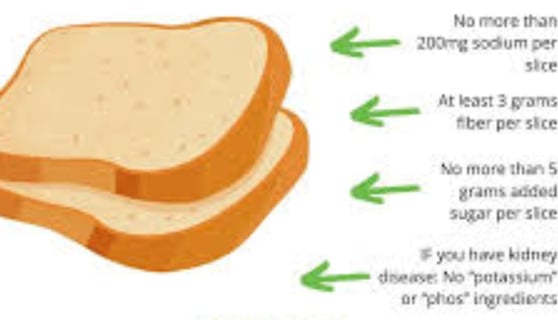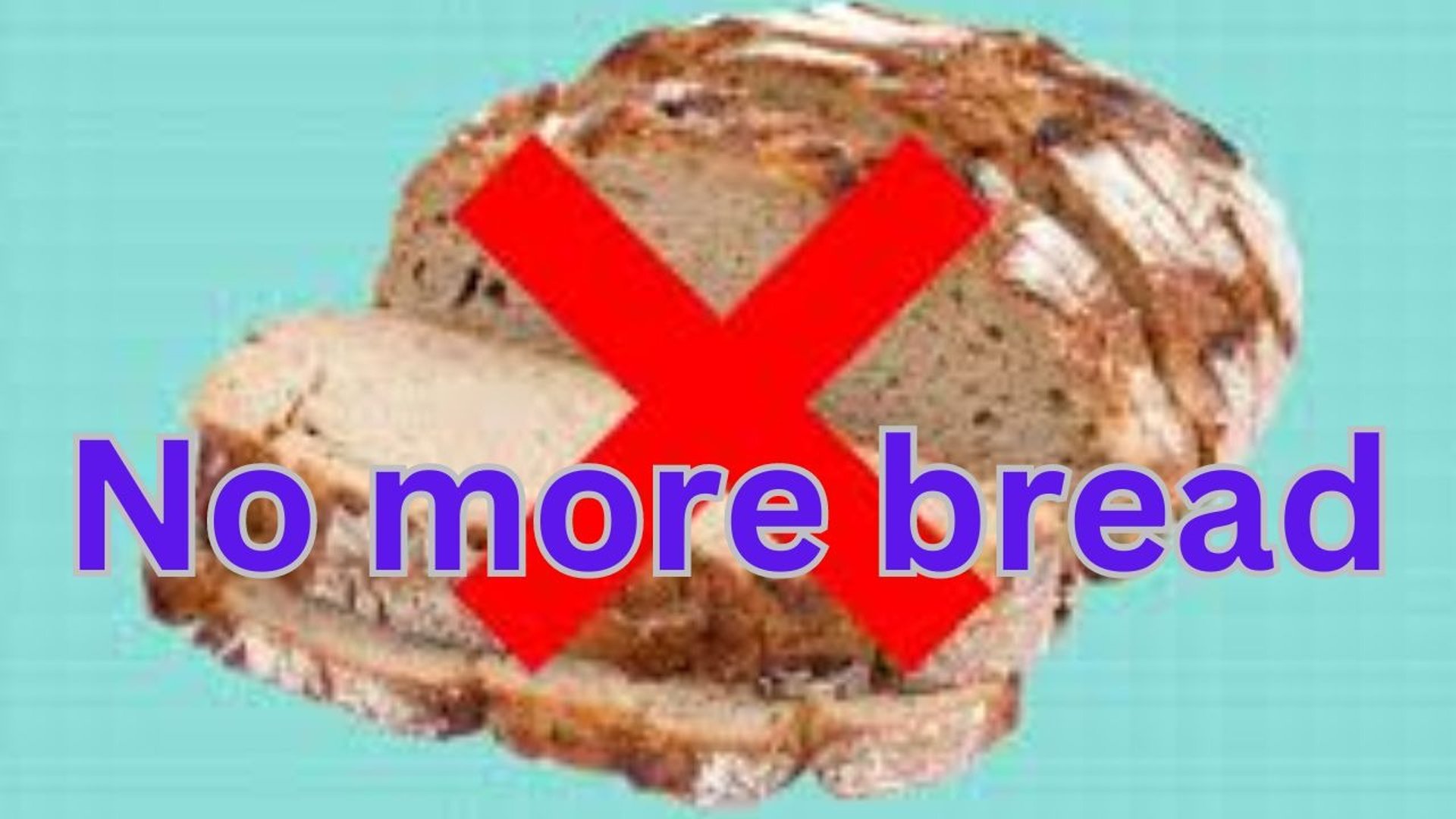
The Health Benefits of Abstaining from Bread and Fasting
Learn how cutting out bread and incorporating fasting into your routine can help lower the risk of heart disease, reduce cholesterol and blood pressure, and improve overall health. Discover the imp...
GENERAL
Dr Hassan Al Warraqi
6/29/2024
The Health Benefits of Abstaining from Bread and Fasting
No-more-bread-effects-on-health
#nomorebread
The effect of abstaining from eating bread and fasting on health
Abstaining from eating bread: Abstaining from eating bread can have different effects on health, depending on the alternative diet that is followed.
Bread is a major source of carbohydrates, which are an important source of energy.
When abstaining from eating bread, the body may need alternative sources of energy such as fruits, vegetables, and proteins.
Abstaining from eating bread can lead to weight loss if it is part of a low-carb diet.
But it may also lead to a deficiency in some nutrients if they are not properly replaced.
Fasting: Fasting has multiple health benefits if practiced correctly.
Fasting can help improve the body's sensitivity to insulin.
Reducing blood sugar levels and improving heart health.
It can also help boost metabolism and burn fat.
Which leads to weight loss.
Fasting should be done with caution, especially for people with certain health conditions such as diabetes or eating disorders.
Combining abstinence from eating bread and fasting:
The benefits can be double if a balanced diet is followed. This can lead to improved energy levels, weight loss, and improved overall health.
However, you must make sure to eat adequate amounts of essential nutrients such as proteins, healthy fats, vitamins and minerals to make up for the lack of carbohydrates from bread.
Fasting can have health benefits by stimulating digestion, regulating blood sugar levels, and improving heart health
Fasting is a safe and effective way to improve overall health, including digestive health, blood sugar levels, and heart health.
Abstaining from eating bread has positive and negative effects
Your general health:
If you have a gluten sensitivity or celiac disease, abstaining from eating bread may significantly improve your overall health.
While the lack of fiber, vitamins and minerals found in whole grains may cause some health problems for people who are healthy.
Your diet:
If you are trying to lose weight, cutting out bread, especially white bread, may help you lose some weight.
But make sure to replace bread with foods rich in fiber and other nutrients to maintain good health.
Your lifestyle:
If you exercise regularly, you may need more carbohydrates, including bread, for energy.
Weight loss:
Abstaining from eating bread, especially white bread, can help you lose some weight. This is because bread contains a high percentage of calories and carbohydrates.
Improve heart health:
Abstaining from eating bread may reduce the risk of heart disease, because it reduces cholesterol and triglyceride levels.
Improve stomach health:
Abstaining from bread may improve digestive health, especially for people with gluten sensitivity or celiac disease.
Blood sugar levels:
Abstaining from eating bread, especially white bread, may help regulate blood sugar levels, because it contains a high percentage of simple carbohydrates that cause a rapid rise in blood sugar levels.
Nutrient deficiency:
Abstaining from eating bread may cause a deficiency in some important nutrients, such as fiber, vitamins, and minerals.
Constipation:
Abstaining from eating bread may cause constipation, because bread is a rich source of fiber.
Fatigue and tiredness:
Abstaining from eating bread may make you feel tired and exhausted, because bread is an important source of energy.
Feeling dizzy and headache:
Abstaining from eating bread may cause dizziness and headaches, because low blood sugar levels may affect brain functions.
Find healthy alternatives:
You can replace bread with other types of whole grains, such as brown rice, quinoa, or oats.
Listen to your body:
Pay attention to your overall feeling and health, and make the necessary adjustments to your diet
Digestive comfort:
During periods of fasting, the digestive system gets a break from digestion, giving it the opportunity to repair itself and rebuild tissue.
Improve absorption of nutrients:
Some studies have shown that fasting may improve the absorption of some nutrients, such as calcium and iron.
Increasing the number of beneficial bacteria:
Some studies have shown that fasting may increase the number of beneficial bacteria in the intestines, which play an important role in overall digestive health.
Improve insulin sensitivity:
Fasting helps improve insulin sensitivity, which helps regulate blood sugar levels.
Reduce insulin resistance:
Fasting helps reduce insulin resistance, a condition that prevents the body from utilizing insulin effectively.
Reducing blood sugar levels:
Studies have shown that fasting reduces blood sugar levels in people with type 2 diabetes.
Lowering blood pressure:
Fasting reduces blood pressure in people who suffer from high blood pressure.
Reducing cholesterol levels:
Fasting may reduce levels of bad cholesterol (LDL) and increase levels of good cholesterol (HDL).
Reducing the risk of heart disease:
Fasting may reduce the risk of heart disease and stroke.
No more bread, the effect of abstaining from eating bread and fasting on health, the risk of heart disease and stroke, lowering cholesterol levels, lowering blood pressure, reducing Blood sugar levels, reduce insulin resistance, improve insulin sensitivity, weight loss,
Frequently Asked Questions (FAQs) About the Benefits of Abstaining from Bread and Fasting
What Are the Potential Health Benefits of Avoiding Bread?
Abstaining from bread, especially processed white bread, may offer several health benefits:
Lower Blood Sugar Levels: White bread contains refined carbohydrates that spike blood sugar. Avoiding it helps regulate glucose levels, particularly for diabetics.
Weight Loss: White bread is calorie-dense but nutrient-poor. Cutting it reduces overall calorie intake.
Improved Digestion: Bread (especially wheat-based) can cause bloating, gas, or diarrhea in some individuals.
Increased Energy Levels: Avoiding bread prevents post-meal energy crashes caused by rapid blood sugar fluctuations.
Heart Health: Reduces intake of saturated fats and processed ingredients linked to higher LDL cholesterol.
Clearer Skin: Refined carbs in bread may trigger acne by increasing oil production.
Potential Downsides:
Nutrient deficiencies (if not replaced with fiber, vitamins, and minerals from other sources).
Constipation (due to reduced fiber intake).
Fatigue, dizziness, or headaches (from low blood sugar).
How Does Fasting Benefit Health?
Fasting offers scientifically supported benefits, including:
Improved Blood Sugar Control: Enhances insulin sensitivity, reducing diabetes risk.
Reduced Inflammation: Lowers markers linked to chronic diseases.
Heart Health: Lowers blood pressure and improves lipid profiles.
Fat Burning: Shifts the body to burn stored fat for energy.
Enhanced Mental Clarity: Stabilizes blood sugar, improving focus.
Cellular Repair: Activates autophagy (cellular cleanup of damaged components).
Increased Human Growth Hormone (HGH): Boosts metabolism, muscle growth, and fat loss.
Metabolic Boost: Short-term fasting may increase metabolism by up to 14%.
What Are the Different Types of Fasting?
Intermittent Fasting: Alternating eating and fasting windows (e.g., 16:8).
Water Fasting: Consuming only water for 24–72 hours.
Partial Fasting: Eliminating specific foods/drinks temporarily.
Calorie Restriction: Reducing calories for a few days weekly.
Fat Fasting: High-fat, low-calorie diet (1,000–1,200 calories/day, 80–90% fat) for 2–5 days.
Is Fasting Safe for Everyone?
Fasting may not be suitable for:
Diabetics: Risk of blood sugar instability.
Elderly, Teens, or Underweight Individuals: Nutritional needs may not be met.
Pregnant/Breastfeeding Women: Requires consistent nutrient intake.
Cancer Patients or Those with Eating Disorders: May worsen health conditions.
Always consult a doctor before starting any fasting regimen.
What Are Healthy Bread Alternatives?
Replace bread with nutrient-dense options like:
Vegetables: Lettuce wraps, collard greens, or zucchini/cauliflower pizza crusts.
Eggs: Use fried eggs as a burger "bun."
Gluten-Free Options: Check labels for hidden sugars.
How Do Bread Abstinence and Fasting Aid Weight Loss?
Reduced Calorie Intake: Cutting bread lowers refined carb consumption.
Fat Burning: Fasting forces the body to use stored fat for energy.
Hormonal Boost: Fasting increases fat-burning hormones like HGH and norepinephrine.
Can I Use Stevia While Fasting?
Pure stevia (no additives) is calorie-free and unlikely to break a fast.
Avoid stevia products with fillers like maltodextrin, which may spike insulin.
Tips for Maintaining Optimal Health
Avoid Harmful Substances: Limit alcohol, tobacco, and processed foods.
Exercise Regularly: Strength training and walking improve metabolism.
Prioritize Sleep: Aim for 7–9 hours in a dark, cool room.
Manage Stress: Practice meditation or deep breathing.
Eat Whole Foods: Focus on vegetables, fruits, lean proteins, and healthy fats.
Key Considerations
Medical Consultation: Essential for those with health conditions or on medication.
Balanced Nutrition: Replace lost nutrients (e.g., fiber, B vitamins) from bread.
Hydration: Drink plenty of water during fasting.
Listen to Your Body: Stop fasting if dizziness, fatigue, or severe hunger occurs.
Summary of Risks
Fasting Risks:
Dehydration or electrolyte imbalance.
Muscle loss (if protein intake is inadequate).
Low blood pressure or fainting.
Nutrient deficiencies (with prolonged fasting).
Bread Abstinence Risks:
Constipation (if fiber intake drops).
Fatigue or headaches (from low blood sugar).
By combining mindful eating, fasting, and a holistic lifestyle, you can harness these practices to improve health while minimizing risks. Always prioritize balance and medical guidance!

